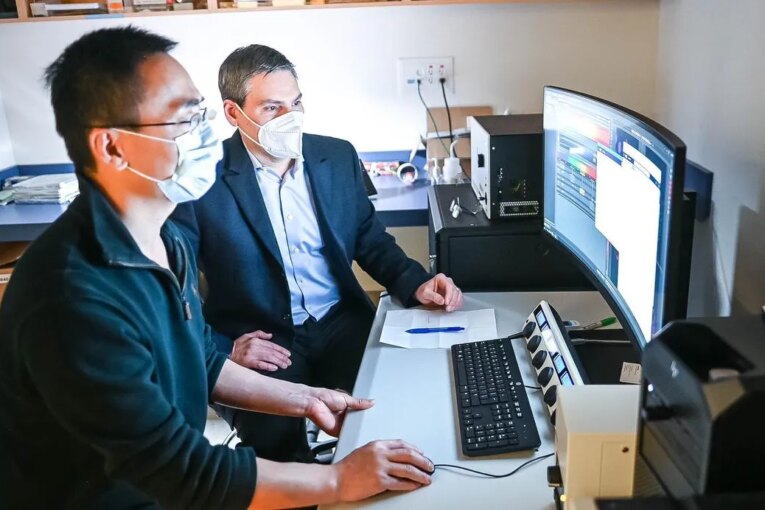
A new study found that three naturally derived Canadian compounds — including one derived from a B.C. sea sponge — effectively prevented COVID-19 infection in human cells and can pave the way for developing new medicines to treat the virus’s ever-growing list of variants.
In the study led by University of British Columbia scientists, international researchers investigated more than 350 compounds derived from natural sources in countries such as Canada, the United States and Brazil, including plants, fungi and marine sponges, to find new antiviral drugs to treat COVID variants.
Natural products are typically a source of antimicrobial agents and have been successful in anti-cancer drugs, said the study’s senior author, François Jean, an associate professor in UBC’s department of microbiology and immunology. Given the success in other areas of medicine, the researchers wanted to determine if natural products could create antiviral drugs to prevent COVID infections.
But what is most promising, according to Jean, is the potential for these compounds to be effective against emerging COVID variants and even influenza and RSV — respiratory infections that have wreaked havoc on Canadian hospitals during a “tripledemic” of viruses this season.
To determine which compounds were effective, researchers “bathed” human lung cells in solutions made from these compounds and then infected the cells with SARS-CoV-2. Of more than 350 compounds investigated, 26 reduced viral infection in the cells, and three of those were effective in small doses.
Three of the most effective compounds the study investigated were found in Canada, including alotaketal C from a sea sponge collected in Howe Sound, B.C.; bafilomycin D from a marine bacteria collected in Barkley Sound, B.C.; and holyrine A from marine bacteria collected in Newfoundland waters.
Rather than the need to scour the ocean floor for sea sponges and marine bacteria, these compounds can be chemically synthesized in labs, said Jean. However, it may be more challenging for bafilomycin D and holyrine A, both bacteria.
“This interdisciplinary research team is unravelling the important possibilities of biodiversity and natural resources and discovering nature-based solutions for global health challenges such as COVID-19,” said Jean.
With an ever-evolving virus like COVID-19, the need for antivirals is imperative, said Jean, especially as monotherapy — or the use of one drug to treat a virus — typically results in drug resistance or other side effects.
When one of the compounds, bafilomycin D, was used in combination with a recently discovered COVID-19 antiviral molecule, researchers found they worked together against the omicron subvariant BA.2. This, according to researchers, suggests a starting point for developing multidrug treatments of omicron variants that are effective in treating COVID-19 and other viruses.
The compounds researched target the cells rather than the virus, which block the virus from replicating and help the cell recover.
“Human cells evolve more slowly than viruses, so these compounds could work against future variants and other viruses such as influenza if they use the same mechanisms,” said Jimena Pérez-Vargas, a research associate in the department of microbiology and immunology and co-author of the study. Data about the compounds’ effectiveness for influenza and RSV are set to be released in the coming weeks.
Researchers plan to test the compounds in animals in the next six months, but a treatment ready for humans isn’t as far away as it would have been pre-pandemic, said Jean, as academic institutions and industry partners are greatly accelerating research on COVID-19.
When asked when the treatments will be available to the public, Jean said “within five years.”
You can read more of the news on source




